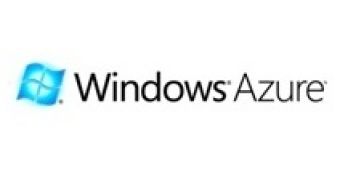Following the launch of the final development milestone of its Cloud platform, Microsoft has made available for download a new release of the software development kit built around Windows Azure. At the Professional Developers Conference 2009 (PDC 2009), the Redmond company released new build of the Windows Azure Software Development Kit (November 2009), now up for grab via the Microsoft Download Center. Developers flirting with Microsoft’s Cloud platform can now download the APIs, but also tools, documentation, and samples necessary to build solutions and services designed to run on top of Windows Azure.
Early adopters looking to jump aboard Windows Azure and test drive the operating system can still do so completely for free. Fact is that even if Microsoft announced the wrapping up of Windows Azure, the company will continue the Community Technology Preview program until the end of this year.
It will be only at the start of 2010 that Windows Azure will evolve past the CTP development milestone, according to Ray Ozzie, Microsoft chief software architect. As of January 1st, 2010, Windows Azure will be stripped of the CTP label. Still, customers have to be aware of the fact that the CTP label is merely a formality at this point in time, as Microsoft has finalized the development process of Windows Azure, and is offering a feature-complete version for testers. “On February 1st, customer billing will begin,” Ozzie added.
Microsoft enumerated the new additions to the “November 2009 SDK:
- Windows Azure Service Runtime managed library: The latest version of the Service Hosting Runtime API includes support for enhanced communication between roles and for runtime notification of service configuration changes. Direct communication between role instances enables new application development scenarios, including applications that distribute state across role instances. Service configuration changes include an increase or decrease in the number of request role instances and changes to the values of configuration settings.
- Windows Azure Diagnostics managed library: The new Diagnostics API enables logging using standard .NET APIs. The Diagnostics API provides built-in support for collecting standard logs and diagnostic information, including the Windows Azure logs, IIS 7.0 logs, Failed Request logs, crash dumps, Windows Event logs, performance counters, and custom logs.
- Certificate Management: Enhanced support for SSL certificates in Windows Azure and in the Windows Azure SDK enables the secure automated deployment of certificates to services hosted on Windows Azure.
- Variable-size Virtual Machines : Developers may now specify the size of the virtual machine to which they wish to deploy a role instance, based on the role's resource requirements. The size of the VM determines the number of CPU cores, the memory capacity, and the local file system size allocated to a running instance.
- External endpoints for worker roles. A worker role may now define any number of external endpoints for HTTP, HTTPS, and TCP, and specify the desired port number for any external endpoint.
- Persistent local resource storage: Developers can now choose to persist data written to a local storage resource at runtime when the role is recycled.
- Windows Azure Storage Client managed library: The Storage Client library provides a .NET API for accessing the Windows Azure storage services.
- Improved Development Storage: Development storage provides a high-fidelity simulation of the Windows Azure storage services in the cloud. Tables can now be created dynamically in the development storage Table service and are no longer required to be generated in advance.
- Updated samples: The samples included with the Windows Azure SDK have been updated to demonstrate new features. The samples now include both C# and Visual Basic versions.”
Windows Azure Software Development Kit (November 2009) is available for download here.

 14 DAY TRIAL //
14 DAY TRIAL //